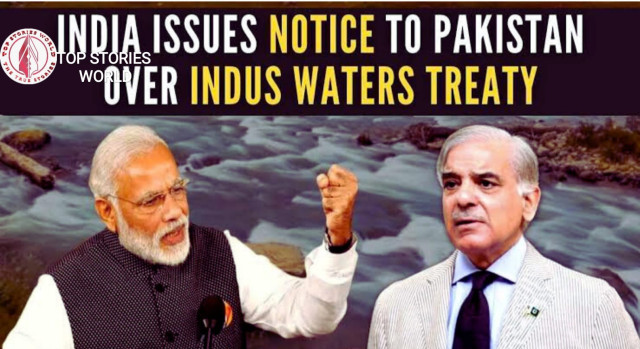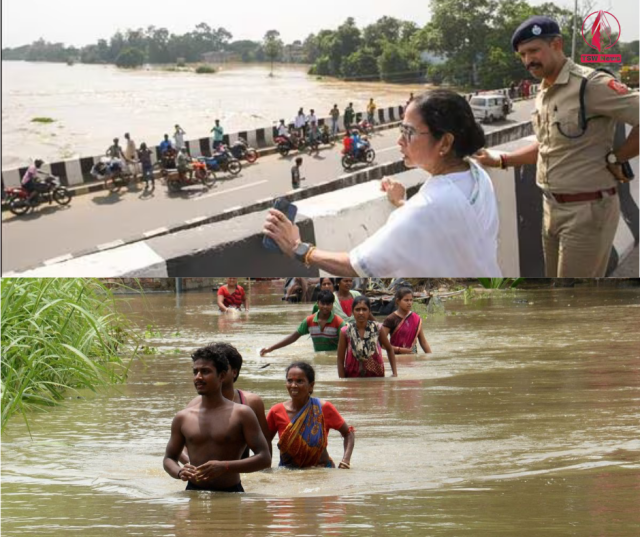Pakistan Receives a Notice from India to Modify the 1960 Indus Water Treaty
- Posted on April 8, 2023
- News
- By Arijit Dutta
- 602 Views
India declared on Friday that it wanted to alter the Indus Water Treaty (IWT), which it has had with Pakistan for 62 years. This was attributed to Pakistan's "intransigence" in resolving disagreements over the Kishenganga and Ratle hydropower projects, both in Jammu and Kashmir.
In addition, India objected to Pakistan's "unilateral" choice to submit a dispute to The Hague's arbitration court. According to sources, the government wrote to Pakistan on Wednesday, January 25, requesting charges to the Treaty following Article XII (3) of the IWT, which is concerned with the "final provisions" of the Treaty.

On Friday, the
Permanent Court of Arbitration in The Hague, the Netherlands, opened the first
hearing in the Pakistani lawsuit. India chose to abstain from the proceedings.
Giving Pakistan notice and asking for a response within 90 days is a
significant move that may cause the water-sharing agreement to fall apart and
need to be renegotiated.
When the two nations have ceased commerce and culture exchanges and the majority of bilateral talks, the pact is sometimes viewed as a rare instance of India-Pakistan unanimity. The sources claimed that Pakistan's effort to pressure the World Bank for a Court of Arbitration opposed the World Bank's present method of resolving disputes by appointing a "neutral expert."

According to
Indian authorities, the "parallel processes" rather than a
"graded mechanism" had resulted in a deadlock. India had no choice
but to insist that Pakistan sit down and negotiate treaty modifications. On the
particular improvements that India would require, officials declined to
comment.
According to
sources, the dispute mechanism's explanation was the main topic of discussion
during the renegotiations. It was also stated that the chance to use
"lessons learned" since 1960 would present itself during the current
intergovernmental negotiations on the IWT.
The sources
stated: "Pakistan's actions have adversely affected the provisions of IWT
and their implementation, forcing."
India must
publish the proper notification before changing the IWT. The start of two
concurrent processes on the same issues and the possibility of their divergent
or contradictory results create an unprecedented and legally untenable
situation that could put IWT in peril.
The Indian
reports on the notice were "diversionary," according to Pakistan's
Foreign Affairs Ministry (MFA), which also claimed that the Court of
Arbitration had been established "under the relevant provisions of the
IWT."
The World Bank praised the Treaty as "one of the most successful transboundary water management treaties in the world and stated it was a "profoundly important" international accord in favor of South Asia's peace and prosperity.

Sutlej, Beas, and
Ravi are the three eastern tributaries of the Indus River, to which India is
granted unlimited access. In comparison, Pakistan is granted access to the
three western tributaries under the terms of the Indus treaty, which divided
the six Himalayan rivers equally between India and Pakistan. (Indus or Sindhu,
Jhelum and Chenab).
In 2006, Pakistan
first voiced concerns over India's plans to build the 330 MW Kishenganga
hydroelectric project on the Jhelum River. Later, Pakistan expressed doubts
about the 850 MW Ratle hydroelectric project that would be made on the Chenab
River.
Given that the
Jhelum and Chenab were considered "western tributaries" by the Treaty
of India and Pakistan, they disagreed on whether the technical aspects of the
hydroelectric schemes were compiled with the agreement.
Article IX of the
Treaty, which deals with the "Settlement of Differences and
Disputes," lists three options for resolving objections raised by either
party:
●
Working within the "Permanent Indus
Commission" (PIC), a group of Indian and Pakistani water experts who regularly
meet.
●
Consulting a World Bank-appointed neutral
expert.
●
Setting up a court process to decide the case
through the World Bank and the Permanent Court of Arbitrage (PCA).
On the other
hand, Pakistan had pushed forward without waiting for India's consent. However,
India has maintained that each step must be thoroughly exhausted before both
sides agree to move on to the next.
The Permanent
Indus Water Commission, conducted last in Delhi in May 2022 and scheduled to
meet in Lahore this year, last met Indian and Pakistani negotiators in November
2022. Pakistan asked the World Bank to appoint an impartial expert in 2015
after nearly ten years of trying to address the issues, but later changed its
mind and requested a Court of Arbitration.
The World Bank
paused both processes in 2016, concerned that the results of the two methods
would be in 2016, worried that the results of the two operations would be in
disagreement. In March 2022, the World Bank lifted the delay.
One of South
Asia's most influential international treaties that have survived wars and
tension between India and Pakistan is the Indus Waters Treaty, signed in 1960
between India and Pakistan. It has never been amended.
The agreement
specifies how the Indus River and its tributaries' waters, essential to
Pakistan's and north India's agriculture and other economic activity, will be
shared.
For more updates,
please visit our website www.topstoriesworld.com where we provide
unbiased, authentic, and top stories of the World.




